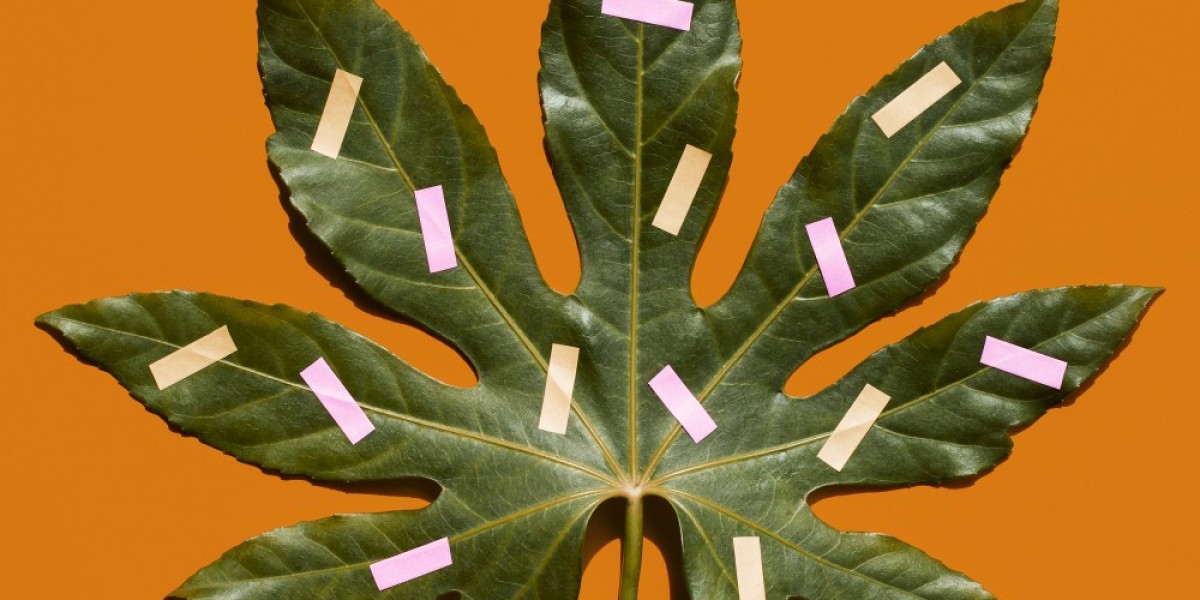As cannabis becomes increasingly legalized and socially accepted across many parts of the world, discussions around its potential for misuse are more important than ever. While many people use cannabis recreationally or even for medicinal purposes, there’s a growing concern around Cannabis Use Disorder (CUD)—a condition that can significantly impact mental health, productivity, and relationships.
Recognizing the signs of cannabis dependency early is crucial. In regions like Punjab, where substance use is a growing public health challenge, facilities such as the Nasha Mukti Kendra in Banur play a key role in supporting individuals and families facing addiction issues—including cannabis-related disorders.
What is Cannabis Use Disorder?
Cannabis Use Disorder (CUD) is a diagnosable medical condition characterized by the compulsive use of cannabis despite significant negative impacts on one’s personal and professional life. According to the Diagnostic and Statistical Manual of Mental Disorders (DSM-5), it includes a set of criteria ranging from increased tolerance to withdrawal symptoms.
Common Signs of Cannabis Use Disorder:
Using more cannabis than intended
Unsuccessful attempts to cut down or quit
Spending a lot of time obtaining, using, or recovering from cannabis
Cravings or strong urges to use
Neglecting responsibilities at work, school, or home
Continued use despite social or interpersonal issues
Using cannabis in physically hazardous situations
Developing tolerance (needing more to get the same effect)
Withdrawal symptoms when not using
A person diagnosed with CUD may experience mild (2–3 symptoms), moderate (4–5 symptoms), or severe (6 or more symptoms) impairment.
Why CUD Often Goes Unrecognized
Unlike substances with immediate and visible impairment like alcohol or opioids, cannabis dependence often develops subtly. Because it is sometimes viewed as “natural” or “safe,” users and even their families may dismiss the signs of dependency.
Other challenges in recognizing CUD include:
Social normalization of cannabis use
Perception that it’s not addictive
Belief that it’s only problematic if used in extreme quantities
Lack of awareness about withdrawal symptoms
This lack of recognition can delay treatment and increase the risk of mental health issues such as anxiety, depression, and cognitive impairments.
Who is at Risk?
Cannabis Use Disorder can affect anyone who uses cannabis, but some people are at a higher risk than others. These include:
Teenagers and young adults whose brains are still developing
People with a family history of addiction
Individuals with co-occurring mental health conditions
Those experiencing chronic stress or trauma
Early intervention is essential. Facilities like the Nasha Mukti Kendra in Banur provide specialized care programs for young adults and others who are at greater risk of developing substance use disorders.
Impact of Cannabis Use Disorder
1. Mental Health
Cannabis has been linked to heightened anxiety, depression, and even psychosis in some users, especially those who use it heavily or started at a young age.
2. Cognitive Function
Long-term cannabis use can impair memory, attention, and learning ability, particularly when the use starts in adolescence.
3. Daily Functioning
People with CUD often struggle with maintaining relationships, meeting responsibilities, and achieving career goals due to low motivation or impaired focus.
4. Physical Health
While cannabis is not typically associated with physical addiction in the same way as opioids or alcohol, users may still experience:
Sleep disturbances
Irritability
Appetite changes
Headaches or fatigue during withdrawal
Treatment Options for Cannabis Use Disorder
Although CUD is treatable, it often requires professional help and family support. Treatment is tailored to the individual but commonly includes:
1. Cognitive Behavioral Therapy (CBT)
Helps individuals identify and change patterns of thinking and behavior related to cannabis use.
2. Motivational Enhancement Therapy (MET)
A short-term intervention that builds motivation to quit.
3. Group Therapy
Provides peer support and shared experiences that can reinforce recovery efforts.
4. Detox and Residential Programs
In cases of severe dependence, detox followed by inpatient care may be necessary. The Nasha Mukti Kendra in Banur offers such services, combining medical supervision with holistic recovery programs.
5. Family Counseling
Involves educating and supporting family members so they can play an active, constructive role in recovery.
The Role of Nasha Mukti Kendra in Banur
Situated in a region that faces significant substance use challenges, the Nasha Mukti Kendra in Banur stands out for its compassionate and evidence-based approach. The center provides services for a wide range of substance use disorders, including cannabis.
Key services include:
Medical detoxification
One-on-one counseling
Yoga and mindfulness practices
Relapse prevention planning
Aftercare and follow-up programs
What sets the facility apart is its emphasis on personalized care, blending traditional methods with modern therapies that help individuals regain control of their lives.
Prevention: Educating Youth and Families
Prevention is always better than cure. Families, schools, and communities must collaborate to educate young people about the risks of cannabis use and the signs of dependency.
Tips for Prevention:
Open and honest conversations about substance use
Providing healthy outlets for stress and emotional management
Setting clear expectations around drug use
Seeking help early if behavioral changes are observed
In many areas, organizations like the Nasha Mukti Kendra in Banur conduct community awareness campaigns and educational sessions to promote early intervention and responsible behavior.
Final Thoughts
Cannabis may not carry the same social or legal stigma as other drugs, but that doesn’t mean it’s risk-free. Cannabis Use Disorder is real, and like any addiction, it requires understanding, compassion, and appropriate treatment.






